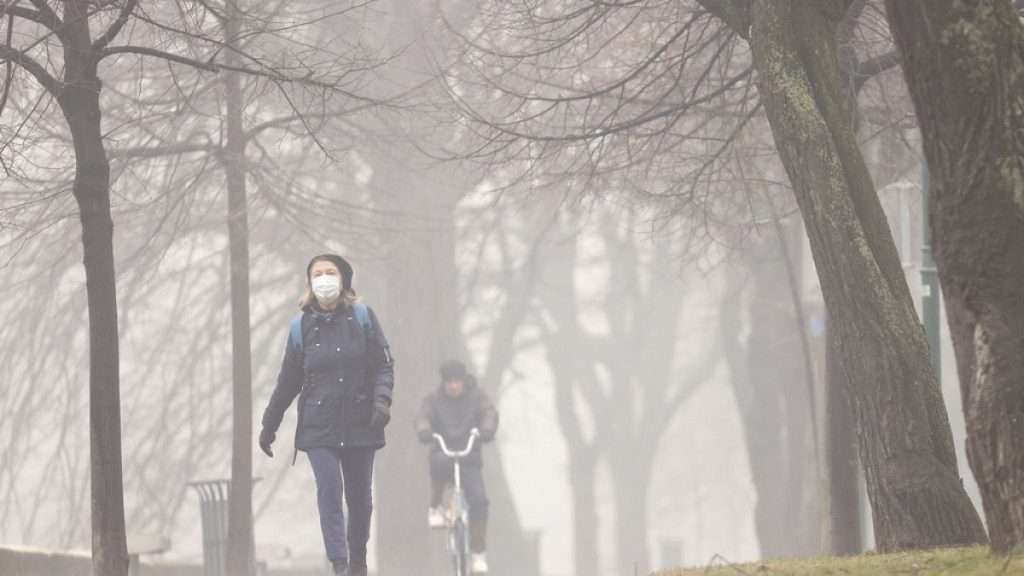Sarajevo, the capital of Bosnia-Herzegovina, found itself shrouded in a thick blanket of pollution for the second consecutive day, a stark reminder of the persistent air quality challenges plaguing the Balkan region. This recurring environmental crisis stems primarily from the widespread reliance on coal and wood for heating during the harsh winter months. The burning of these fuels releases a cocktail of harmful pollutants into the atmosphere, including particulate matter, sulfur dioxide, and nitrogen oxides, which contribute to the formation of smog and haze. The resulting poor air quality poses significant health risks to residents, exacerbating respiratory illnesses, cardiovascular problems, and increasing the risk of premature death. This situation underscores the urgent need for sustainable energy solutions and effective air quality management strategies in the region.
The pervasiveness of air pollution in the Balkans is a complex issue rooted in a combination of factors. Economic constraints often limit access to cleaner energy sources, forcing many households and industries to rely on cheaper but more polluting options like coal and wood. The mountainous terrain of the region can also trap pollutants, preventing their dispersal and exacerbating the problem. Furthermore, outdated industrial practices and inadequate environmental regulations contribute to the overall burden of air pollution. The situation in Sarajevo highlights the regional struggle and serves as a microcosm of the broader challenges faced by Balkan nations in tackling this pressing environmental and public health concern.
The health implications of prolonged exposure to poor air quality are well-documented. Fine particulate matter, or PM2.5, is particularly dangerous as it can penetrate deep into the lungs and even enter the bloodstream, leading to a range of respiratory and cardiovascular complications. Children, the elderly, and individuals with pre-existing health conditions are especially vulnerable to the adverse effects of air pollution. The World Health Organization (WHO) estimates that air pollution contributes to millions of premature deaths globally each year, underscoring the urgency of implementing effective mitigation measures. In Sarajevo and other similarly affected cities, the persistent poor air quality translates into a decreased quality of life and increased healthcare burdens.
Sarajevo’s unfortunate distinction as one of the most polluted cities in Europe and the world highlights the severity of the situation. While the city has made some efforts to address the issue, including promoting public transportation and introducing stricter emission standards for vehicles, more comprehensive and sustained action is required. This includes transitioning to cleaner energy sources, modernizing industrial practices, and implementing robust air quality monitoring and management systems. International cooperation and financial assistance are also crucial in supporting these efforts and ensuring the long-term health and well-being of the city’s residents.
Addressing the root causes of air pollution requires a multi-faceted approach. Investing in renewable energy sources, such as solar, wind, and hydropower, can reduce reliance on fossil fuels and significantly improve air quality. Promoting energy efficiency measures in buildings and industries can also contribute significantly to reducing overall emissions. Implementing stricter environmental regulations and enforcing existing ones is essential to curbing industrial pollution. Furthermore, raising public awareness about the health risks associated with air pollution and promoting individual actions, such as using public transport and avoiding burning wood, can play a significant role in mitigating the problem.
The ongoing air pollution crisis in Sarajevo and the wider Balkan region necessitates a collective and coordinated response. Governments, industries, international organizations, and individuals must work together to implement sustainable solutions and ensure a healthier future for all. The long-term consequences of inaction are dire, both for human health and the environment. By prioritizing clean air as a fundamental right and investing in sustainable practices, the Balkans can break free from the cycle of pollution and build a more resilient and sustainable future. The case of Sarajevo serves as a stark reminder of the urgency of this task and the importance of collaborative action.














